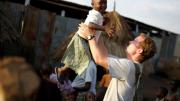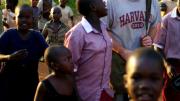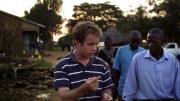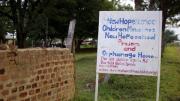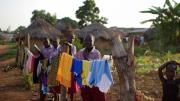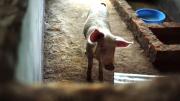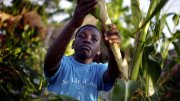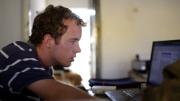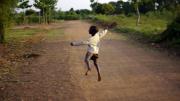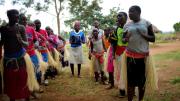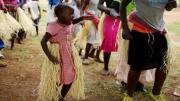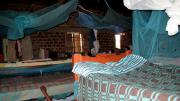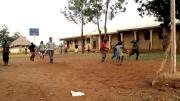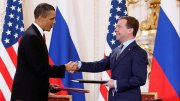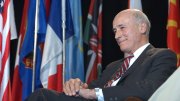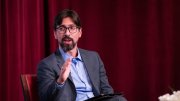In Busia, Uganda, a dusty, gritty, border town of 50,000, the main drag is lined with hotels that cater to truckers. At many of these, more than lodging is provided. The HIV infection rate is significantly higher here than elsewhere in Uganda.
This is where, in 2002, a former children’s social worker named Ken Mulago opened an orphanage. Dubbed New Hope, it quickly met and surpassed its capacity, doubling up its charges in their narrow bunks. There were children of commercial sex workers, children abandoned or abused by their parents, and children whose parents— sick with HIV or addicted to drugs or drink—were simply unable to care for them.
In 2007, Christopher Higgins ’10 arrived to find New Hope on the precipice. Mulago was able to keep the children fed, clothed, and in school, but just barely. He didn’t take a salary; in bad months, his wife or another relative would bail out the orphanage.
Higgins, a social-studies concentrator and ROTC cadet in Winthrop House, came for what he thought was a one-time visit. (Seduced by friends’ gap-year stories, he’d decided to take a year off from Harvard to travel.) He found New Hope by stumbling on its website; it was, he says, “a leap of faith.” For Mulago, it was the answer to a prayer. “I don’t want to be pessimistic,” he says, “but I think we would have closed if he had not come. The situation was so bad, so bad, so bad.”
Despite the challenges, Higgins found himself charmed by the children and impressed with the way Mulago ran the orphanage, how he taught the children to care for each other and pitch in with chores. Though Higgins continued his trip, spending the first half of 2008 traveling mostly overland from Indonesia to Turkey, his heart was in Busia. In between writing grant proposals, soliciting donations, building a new website, and recruiting volunteers (contacting friends and family from Internet cafés across Asia), Higgins pondered how to set up the orphanage so it wouldn’t require external support to stay afloat.
In the two years since, he has returned twice and worked with Mulago and the other three orphanage staffers, along with American volunteers (he has recruited more than 20, including several Harvard students), to implement projects that include opening an Internet café (which earns money and serves as a computer school for the orphans); buying a pickup truck that neighbors can rent for a fee; constructing buildings on the orphanage grounds to house pigs and chickens, bred for food and for sale; and planting a sweet-potato crop that, by itself, should fetch a price equal to New Hope’s annual operating costs. In fact, the orphanage expects to have enough income to cover university tuition for its inhabitants as they reach the enrollment age.
New Hope has left reciprocal impressions on Higgins. He plans a senior thesis on trade and foreign-policy links between China and Africa. He picked up some practical skills—figuring out how to buy a load of pigs in Kampala, to take just one example. And there is his relationship with Mulago, whom he calls “incredibly humble, generous, and inspirational”—a friendship based on deep respect for what one man, armed with passion and principles, prepared to work hard, can accomplish.
